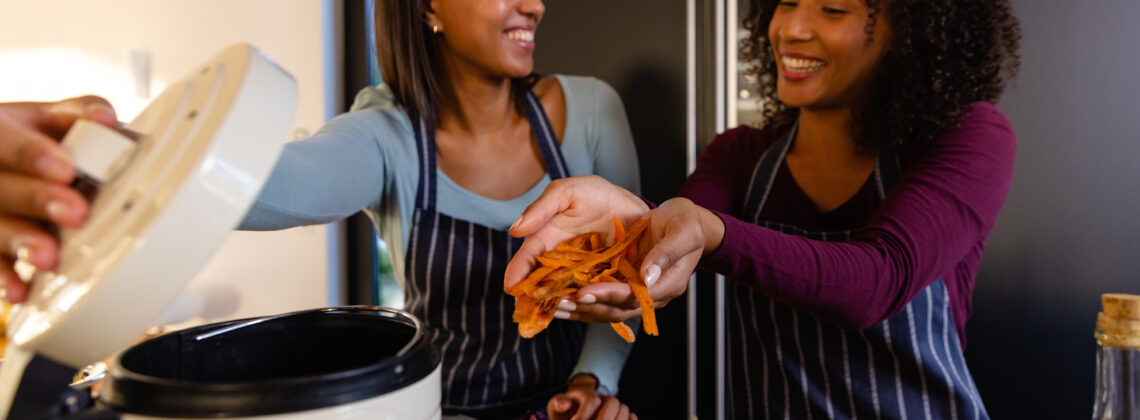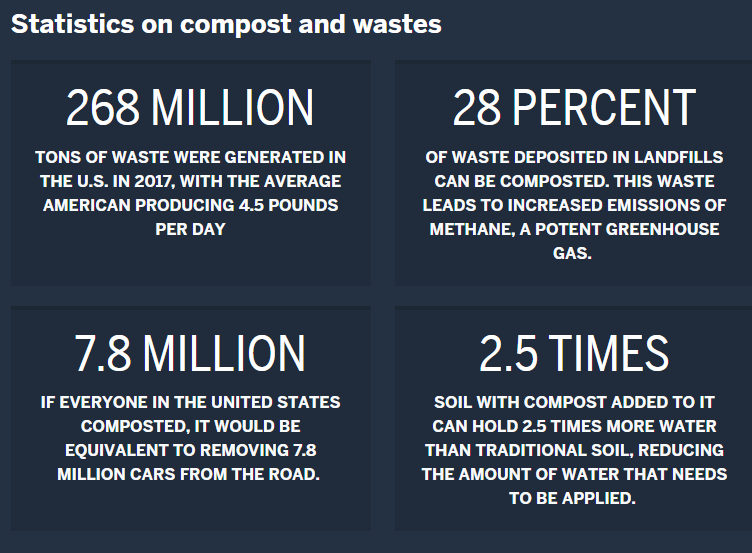
Have you ever thought about composting but decided it’s too difficult or that you need a big yard? The good news is that composting is actually pretty easy and you can even do it from your condo balcony in the city – no yard required. Best of all, you can participate in making the world a better place by helping to reduce waste. Learn how to compost – it’s easier than you think:
MOTIVATIONAL STATISTICS
Need more motivation to begin your composting “habit?” Consider the following mind-boggling U.S. statistics supplied by the Environmental Resilience Institute:
- 268 million tons of waste were generated in 2017
- The average person produces 4.5 lbs. of waste a day
- 28% of waste in landfills makes our world hotter and could have been composted instead
- If everyone composted it would amount to 7.8 million cars being removed from the road
- Soil with added compost holds 2.5 times more water
- Composting your organic kitchen waste is FREE
- Composting cuts back on your garbage costs

WHERE TO BEGIN
Start the habit of composting by using a stainless steel container with a lid. Place on your kitchen counter and daily scrape your meal scraps into the container. (Do not include meat or dairy products.) Things like coffee grounds with the filter is fine. When composting, keep in mind your “greens” and “browns” and try to have an even amount of each. Greens are organic food scraps; Browns are things like used paper napkins, brown paper bags and shredded paper.
At the end of each day transfer your scraps into a larger container with a lid in your yard, patio or balcony. This could be a garbage can or a rain collection container. Give it a stir everyday, and add enough water to keep the pile moist but not soggy. When you reach the ¾ line of your container, stop adding to the pile and let it sit for three to four weeks. Don’t forget to keep it stirred and moist. If you want to speed up the process, add a bit of dirt or potting mix to your pile. You may want to have a second compost container so that you can move from one to the other by turn as it becomes fully formed soil ready for use. Your garden or potted plants will thank you.
There’s a lot more you can learn about composting and a variety of products you can purchase to up your game. But starting out by keeping it simple should get you on your way easily and affordably.
